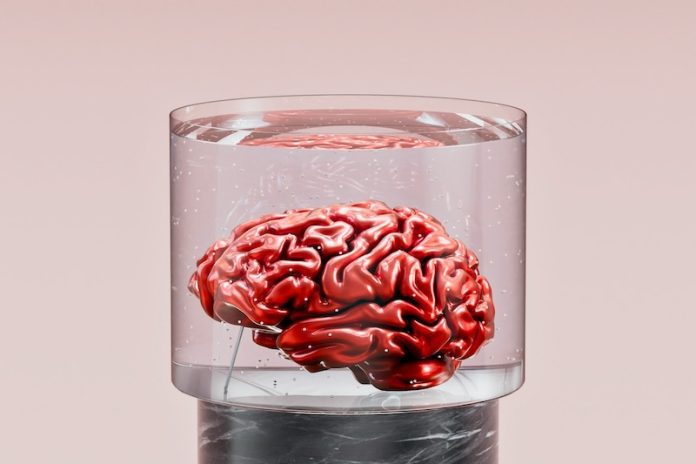
Researchers at the University of Pittsburgh have discovered an unexpected connection between Alzheimer’s disease and herpes simplex virus-1 (HSV-1), a virus that causes cold sores.
Published in Cell Reports, the study sheds new light on how viral infections might play a role in Alzheimer’s development, potentially opening new paths for treatment.
The study revealed that the tau protein, often considered harmful in Alzheimer’s disease, might initially serve as a defense mechanism against the virus. However, over time, this protective role may shift, contributing to the brain damage characteristic of Alzheimer’s.
“Our research challenges the traditional view of tau as purely harmful,” said Dr. Or Shemesh, senior author and assistant professor at the University of Pittsburgh.
“It shows tau might be part of the brain’s immune system, defending against viral infections like HSV-1. This finding highlights a complex relationship between infections, immune responses, and neurodegeneration.”
The researchers examined brain samples from Alzheimer’s patients and found higher amounts of HSV-1-related proteins in regions vulnerable to Alzheimer’s disease.
These viral proteins were often located near tau tangles—clumps of tau protein that are hallmarks of Alzheimer’s. The presence of these viral proteins suggests a potential link between HSV-1 infections and the progression of Alzheimer’s.
To investigate further, the team used miniature models of human brains grown in a lab. They observed that HSV-1 infections altered tau levels in the brain.
Initially, this seemed to protect brain cells by reducing neuron death. However, the longer-term effects of this interaction and how it contributes to Alzheimer’s remain unclear.
Future research will focus on understanding the precise mechanisms behind HSV-1’s impact on tau and Alzheimer’s disease.
The team also plans to test therapies that target viral proteins or modulate the brain’s immune response. These findings could have implications for other neurodegenerative diseases like Parkinson’s disease and ALS.
“This work emphasizes the need to rethink how infections and the immune system interact with neurodegenerative diseases,” said Dr. Shemesh. “It offers a fresh perspective and new opportunities for developing treatments.”
The study was conducted by a collaborative team of researchers from the University of Pittsburgh, Tel Aviv University, and Carnegie Mellon University, including experts in neurology, virology, and brain modeling.
This groundbreaking research points to a potential role for viral infections in Alzheimer’s disease and underscores the complexity of the disease’s progression.
If you care about Alzheimer’s disease, please read studies about the protective power of dietary antioxidants against Alzheimer’s, and eating habits linked to higher Alzheimer’s risk.
For more information about brain health, please see recent studies that oral cannabis extract may help reduce Alzheimer’s symptoms, and Vitamin E may help prevent Parkinson’s disease.
The research findings can be found in Cell Reports.
Copyright © 2025 Knowridge Science Report. All rights reserved.



